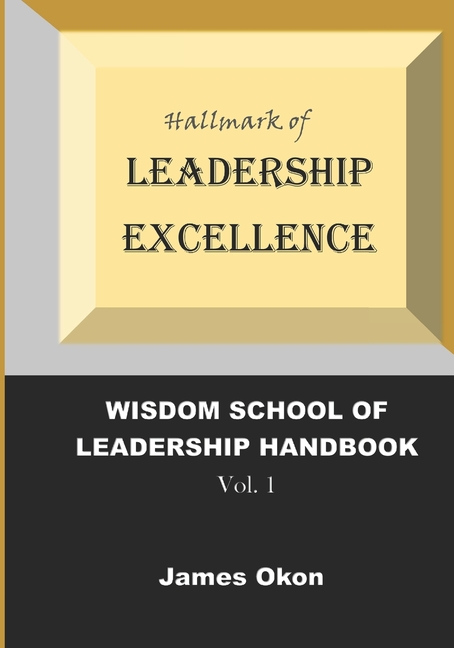Description
The Wisdom School of Leadership is an innovative online and onsite educational paradigm designed to develop leaders who embody deep ethical awareness, practical wisdom, and transformative vision. Rooted in both ancient traditions and contemporary research, this model integrates moral discernment, self-reflection, and adaptive decision-making to navigate complex challenges in education, business, and societal governance. Core Principles of the Wisdom School of Leadership 1. Ethical and Virtue-Based Leadership The school emphasizes moral integrity, selflessness, accountability, and service, drawing from frameworks like the Framework for Ethical Leadership in Education (FELE), which promotes virtues such as trust, justice, courage, and wisdom. Leaders are trained to balance competing demands-such as policy compliance and compassionate flexibility-while prioritizing long-term human flourishing over short-term gains.
2. Integration of Cognitive, Emotional, and Spiritual Wisdom Unlike conventional leadership programs, the Wisdom School fosters holistic development by blending:
A. Cognitive wisdom(critical thinking, contextual understanding)
B. Emotional wisdom (empathy, resilience, relational intelligence)
C. Spiritual wisdom (purpose-driven leadership, contemplative practices).
This approach aligns with research showing that wise leadership requires embodied action, not just theoretical knowledge. 3. Contextual and Adaptive Decision-Making Leaders are equipped with the Practical Wisdom Framework (PWF), which emphasizes:
A. Aim (clarity of purpose)
B. Context (situational awareness)
C. Agency (strategic action).
This helps them navigate tensions between justice and mercy, rules and exceptions, and individual vs. collective needs.
4. Transformative and Servant Leadership The school advocates for servant leadership, where leaders act as stewards of their communities, fostering trust, collaboration, and sustainable growth. Case studies highlight how wisdom-led leaders create positive societal ripple effects, solving systemic problems rather than just organizational ones.
5. Continuous Learning and Reflective Practice Through retreats bootcamps, mentorship, and experiential learning, leaders engage in:
A. Contemplative practices (meditation, mindful leadership)
B. Case-based discussions (real-world ethical dilemmas)
C. Peer collaboration (wisdom-sharing forums). This aligns with findings that wisdom develops through diverse life experiences and intentional reflection. Unique Features
A. Rooted in Tradition, Adapted for Modernity: Combines Benedictine "ora et labora" (prayer and work) rhythms with contemporary neuroscience and leadership psychology.
B.Focus on Societal Impact: Leaders are trained to address global crises (e.g., inequality, climate change) with wisdom-based solutions.
C. Local Wisdom Integration: Some programs incorporate cultural and indigenous leadership values to enhance relevance. Outcomes Graduates emerge as:
D. Ethical decision-makers who resist toxic or short-sighted leadership trends.
E. Visionary guides who inspire teams through integrity and long-term thinking.
F. Agile problem-solvers adept at balancing competing priorities wisely. In essence, the Wisdom School of Leadership is not just about skill acquisition-it's about character formation, ensuring leaders act with clarity, compassion, and courage in an uncertain world.
2. Integration of Cognitive, Emotional, and Spiritual Wisdom Unlike conventional leadership programs, the Wisdom School fosters holistic development by blending:
A. Cognitive wisdom(critical thinking, contextual understanding)
B. Emotional wisdom (empathy, resilience, relational intelligence)
C. Spiritual wisdom (purpose-driven leadership, contemplative practices).
This approach aligns with research showing that wise leadership requires embodied action, not just theoretical knowledge. 3. Contextual and Adaptive Decision-Making Leaders are equipped with the Practical Wisdom Framework (PWF), which emphasizes:
A. Aim (clarity of purpose)
B. Context (situational awareness)
C. Agency (strategic action).
This helps them navigate tensions between justice and mercy, rules and exceptions, and individual vs. collective needs.
4. Transformative and Servant Leadership The school advocates for servant leadership, where leaders act as stewards of their communities, fostering trust, collaboration, and sustainable growth. Case studies highlight how wisdom-led leaders create positive societal ripple effects, solving systemic problems rather than just organizational ones.
5. Continuous Learning and Reflective Practice Through retreats bootcamps, mentorship, and experiential learning, leaders engage in:
A. Contemplative practices (meditation, mindful leadership)
B. Case-based discussions (real-world ethical dilemmas)
C. Peer collaboration (wisdom-sharing forums). This aligns with findings that wisdom develops through diverse life experiences and intentional reflection. Unique Features
A. Rooted in Tradition, Adapted for Modernity: Combines Benedictine "ora et labora" (prayer and work) rhythms with contemporary neuroscience and leadership psychology.
B.Focus on Societal Impact: Leaders are trained to address global crises (e.g., inequality, climate change) with wisdom-based solutions.
C. Local Wisdom Integration: Some programs incorporate cultural and indigenous leadership values to enhance relevance. Outcomes Graduates emerge as:
D. Ethical decision-makers who resist toxic or short-sighted leadership trends.
E. Visionary guides who inspire teams through integrity and long-term thinking.
F. Agile problem-solvers adept at balancing competing priorities wisely. In essence, the Wisdom School of Leadership is not just about skill acquisition-it's about character formation, ensuring leaders act with clarity, compassion, and courage in an uncertain world.
Last updated on
Product Details
- Jun 20, 2025 Pub Date:
- 9798288961854 ISBN-10:
- 9798288961854 ISBN-13:
- English Language




